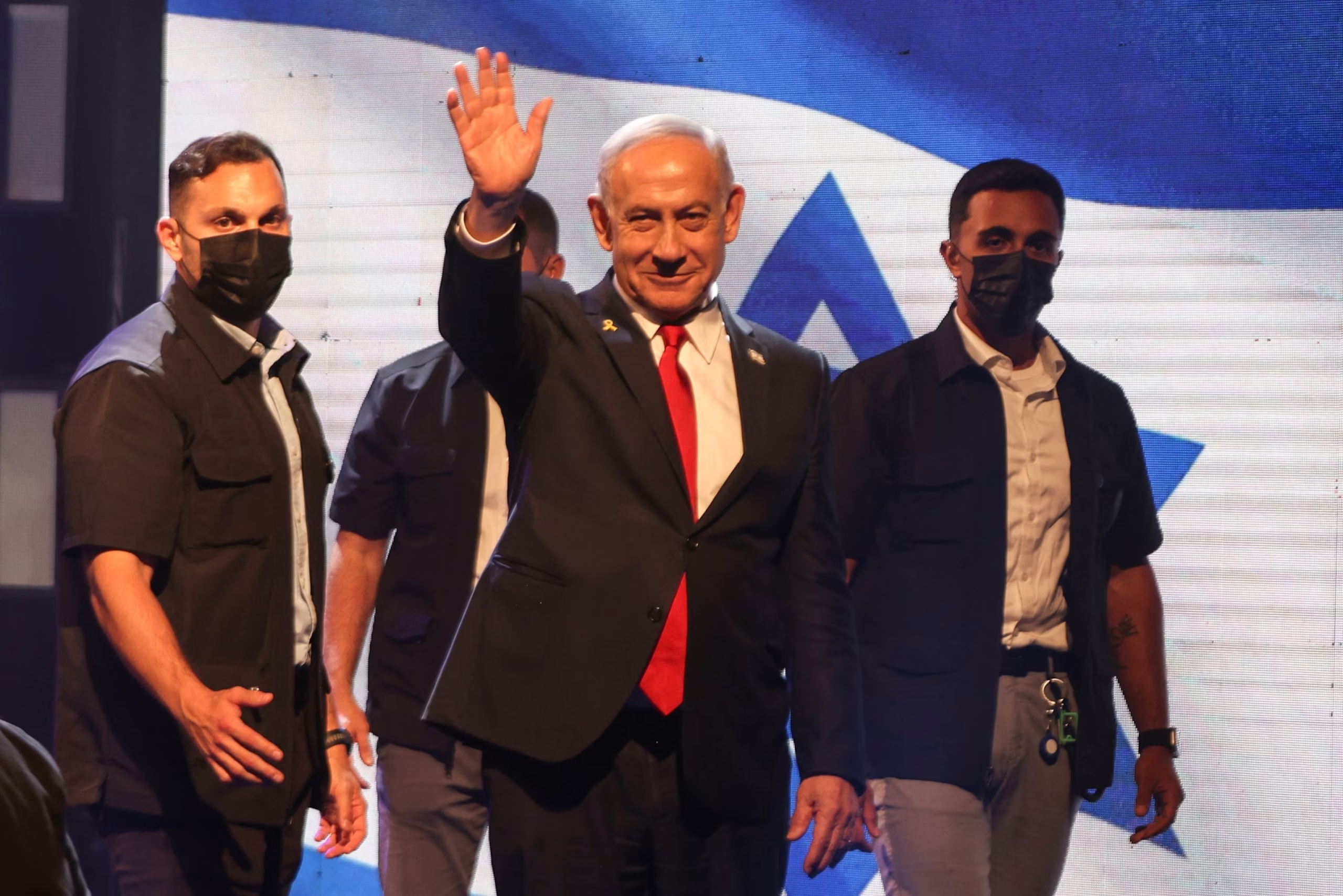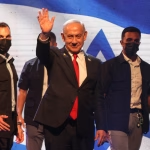In recent weeks, Middle East tensions have once again surged as Israeli Prime Minister Benjamin Netanyahu suggested that Israel may not be finished with its campaign against Hamas leadership. His remarks have been interpreted as a warning of possible future strikes on senior Hamas figures, fueling speculation about how far Israel is prepared to go in its ongoing confrontation with the Palestinian militant group.
- The Context Behind Netanyahu’s Warning
- Political Calculations and Domestic Pressure
- Hamas Leadership and Regional Reactions
- The Humanitarian Angle
- Strategic and Military Considerations
- The Role of the United States and International Community
- Voices from the Ground
- Looking Ahead: Will Netanyahu Follow Through?
- FAQs
- What did Netanyahu mean by signaling possible future strikes on Hamas leaders?
- How does Hamas typically respond to Israeli targeted strikes?
- What role do regional players like Qatar and Egypt play in this conflict?
- What are the humanitarian risks of further escalation?
- Will the United States support Netanyahu’s strategy?
- Conclusion
The comments come at a time when ceasefire negotiations remain fragile, regional diplomacy is being tested, and civilians on both sides continue to pay a heavy price for the cycle of violence. For Israel, striking Hamas leaders is not only a matter of military strategy but also one of deterrence and national security. For Palestinians, these strikes are seen as escalations that deepen suffering, undermine political progress, and weaken the prospect of peace.
The statement reflects a wider geopolitical struggle, involving not just Israel and Hamas, but also regional players like Egypt, Qatar, and Iran, as well as the United States, which has historically played a critical role in mediating between the two sides. As analysts debate whether Netanyahu’s words are a signal of genuine intent or a calculated political move, the world watches anxiously to see if the already volatile situation will spiral into another round of large-scale conflict.
The Context Behind Netanyahu’s Warning
Netanyahu’s remarks must be understood in the backdrop of a long and bitter conflict between Israel and Hamas. Hamas, which controls the Gaza Strip, has fought multiple wars with Israel since seizing power in 2007. Each round of violence has left behind destruction, human loss, and deepened mistrust. Israel, on its part, considers Hamas a terrorist organization responsible for rocket attacks, cross-border raids, and what it views as a consistent threat to its citizens’ safety.
The Israeli prime minister’s warning did not come in isolation. It followed targeted strikes earlier this year that eliminated several Hamas commanders accused of orchestrating rocket fire and tunnel operations against Israel. These targeted killings have historically been part of Israel’s defense doctrine, which believes in dismantling militant leadership structures to weaken operational capacity. Netanyahu’s message is clear: if Hamas leaders continue to direct attacks against Israel, they should not consider themselves beyond reach, even if they are hiding in foreign territories such as Qatar or Lebanon.
Political Calculations and Domestic Pressure
Netanyahu’s signals of possible future strikes also carry political weight within Israel. He is facing significant domestic pressure, not just from security officials but also from political rivals and a public that demands both safety and accountability. In recent months, Israeli citizens in border towns have endured rocket sirens and periods of instability, creating a sense of vulnerability that Netanyahu cannot afford to ignore. By projecting strength and vowing to target Hamas leadership, he reinforces his image as the protector of Israeli security.
Experts also note that Netanyahu’s statements often serve dual purposes—addressing external enemies while consolidating domestic political support. His critics argue that continued military escalation may play into his political survival strategy, particularly when facing challenges from opposition parties and ongoing debates about governance, judicial reforms, and Israel’s global image.
Hamas Leadership and Regional Reactions
The possibility of strikes on Hamas leaders has significant implications for the group’s leadership, many of whom reside outside of Gaza. Figures like Ismail Haniyeh, who has been based in Qatar, and others who move between Turkey, Lebanon, and the wider region, are now on high alert. For Hamas, such threats are not new, but the explicitness of Netanyahu’s warning increases their sense of vulnerability.
Regional actors have reacted with caution. Qatar, which plays a mediating role between Hamas and Israel, has expressed concern that direct targeting of leaders residing on its soil could undermine diplomatic efforts and potentially drag it into conflict dynamics. Egypt, a key broker in past ceasefires, worries that a fresh wave of assassinations could derail ongoing negotiations aimed at maintaining fragile calm. Iran, a staunch supporter of Hamas, has already condemned Israel’s threats, warning that such actions could ignite broader regional instability.
The Humanitarian Angle
While much of the focus remains on military strategies and political calculations, the humanitarian consequences of potential escalations cannot be ignored. Gaza, home to more than two million people, is already grappling with severe humanitarian challenges, including shortages of electricity, clean water, and medical supplies. Every round of conflict worsens these conditions, pushing civilians deeper into crisis.
Aid organizations repeatedly warn that targeted assassinations and subsequent retaliations often lead to widespread civilian casualties. According to United Nations reports, past Israeli operations in Gaza have killed thousands of civilians, many of them women and children. Similarly, Hamas rocket fire indiscriminately targets Israeli towns, putting civilians in constant danger. Netanyahu’s warning of future strikes raises fears that another cycle of violence could erupt, worsening the humanitarian toll on both sides.
Strategic and Military Considerations
Israel has long pursued a strategy of targeted killings, which it views as an effective way to disrupt militant networks. Past operations have eliminated key figures in Hamas, including Ahmed Yassin and Abdel Aziz al-Rantisi, both assassinated in 2004. However, military experts debate whether such strategies truly achieve long-term security or simply create new leaders who emerge even more determined.
Supporters of the policy argue that decapitating leadership reduces Hamas’ ability to plan coordinated attacks and sends a powerful deterrent message. Critics counter that these actions often provoke immediate retaliation, trigger international condemnation, and ultimately fail to address the root causes of conflict. Netanyahu’s signaling of future strikes suggests Israel remains firmly committed to this approach, despite the risks of escalation.
The Role of the United States and International Community
The United States has historically been Israel’s closest ally, providing both military support and diplomatic backing. Following Netanyahu’s warning, Washington has urged restraint while reaffirming Israel’s right to defend itself. American officials are keenly aware that unchecked escalation could destabilize the entire Middle East, particularly at a time when U.S. foreign policy is already stretched across multiple global challenges.
The international community, including the European Union and the United Nations, continues to call for de-escalation and renewed dialogue. There is growing concern that targeted strikes on Hamas leaders abroad could set dangerous precedents, violating sovereignty and inflaming regional hostilities. Diplomats stress the need for a political resolution, though repeated efforts at peace talks have consistently faltered.
Voices from the Ground
For ordinary people caught in the crossfire, Netanyahu’s warning is more than just a political statement—it is a looming shadow over their daily lives. In southern Israel, families live with the constant fear of rocket sirens, rushing children into shelters as alarms sound. One Israeli mother described the strain, saying, “Every time we hear the siren, our hearts race. We want peace, but we also want safety.”
In Gaza, the picture is equally grim. Families brace for airstrikes, uncertain whether their homes or neighborhoods might become targets. A young Gazan student shared with aid workers, “We live with fear every day. When leaders talk about more strikes, we wonder if we will be alive tomorrow.” These personal stories highlight the human dimension behind political rhetoric, reminding the world that beneath military strategies lie real lives at risk.
Looking Ahead: Will Netanyahu Follow Through?
Whether Netanyahu will act on his warning remains uncertain. Analysts note that such statements often serve as psychological warfare, designed to pressure Hamas and influence diplomatic negotiations. However, given Israel’s history of targeted strikes, the possibility cannot be dismissed. The coming weeks will likely reveal whether this was a calculated political move or a precursor to concrete action.
What is clear is that the conflict between Israel and Hamas shows no sign of resolution. Each round of violence hardens positions, erodes trust, and pushes the dream of lasting peace further away. Netanyahu’s signals of possible future strikes are a stark reminder of how fragile the situation remains and how easily it could spiral into another war.
FAQs
What did Netanyahu mean by signaling possible future strikes on Hamas leaders?
Netanyahu’s remarks suggested that Israel may carry out targeted assassinations of Hamas leaders if the group continues to pose a threat. These comments serve as both a warning to Hamas and a message to the Israeli public about the government’s commitment to security.
How does Hamas typically respond to Israeli targeted strikes?
Hamas often responds with rocket fire into Israeli territory, leading to escalations that can spiral into broader conflicts. In past confrontations, targeted killings of Hamas leaders have triggered intense fighting lasting days or even weeks.
What role do regional players like Qatar and Egypt play in this conflict?
Qatar and Egypt act as key mediators between Israel and Hamas. Qatar provides financial aid to Gaza and hosts Hamas leaders, while Egypt has historically brokered ceasefires. Both countries are concerned that Israeli strikes on Hamas leaders could undermine ongoing diplomatic efforts.
What are the humanitarian risks of further escalation?
Further escalation would likely worsen the humanitarian crisis in Gaza, where civilians already face shortages of essential resources. Past conflicts have led to high civilian casualties on both sides, with children and families bearing the brunt of the violence.
Will the United States support Netanyahu’s strategy?
The United States supports Israel’s right to self-defense but also urges restraint to avoid regional instability. While Washington may back certain Israeli actions, it remains wary of broader escalations that could undermine American interests in the Middle East.
Conclusion
Netanyahu’s signals of possible future strikes on Hamas leaders underscore the volatile and fragile nature of the Israeli-Palestinian conflict. While framed as a strategy of deterrence and security, such actions carry enormous risks of escalation, humanitarian suffering, and regional instability.
The remarks highlight the complex interplay of military strategy, domestic politics, and international diplomacy. As both Israelis and Palestinians brace for what may come next, the world is reminded that peace remains elusive, and the stakes of miscalculation are dangerously high.










